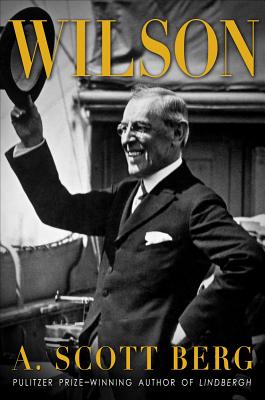One hundred years after his inauguration, Woodrow Wilson still stands as one of the most influential figures of the twentieth century, and one of the most enigmatic. And now, after more than a decade of research and writing, Pulitzer Prize-winning author A. Scott Berg has completed Wilson--the most personal and penetrating biography ever written about the 28th President.
In addition to the hundreds of thousands of documents in the Wilson Archives, Berg was the first biographer to gain access to two recently-discovered caches of papers belonging to those close to Wilson. From this material, Berg was able to add countless details--even several unknown events--that fill in missing pieces of Wilson’s character and cast new light on his entire life.
From the scholar-President who ushered the country through its first great world war to the man of intense passion and turbulence , from the idealist determined to make the world “safe for democracy” to the stroke-crippled leader whose incapacity and the subterfuges around it were among the century’s greatest secrets, the result is an intimate portrait written with a particularly contemporary point of view – a book at once magisterial and deeply emotional about the whole of Wilson’s life, accomplishments, and failings. This is not just Wilson the icon – but Wilson the man.
On November 5, 1912, Governor Wilson walked to his Princeton polling
place and cast his vote. He was elected the twenty-eight President of
the United States in a landslide.
"I'm glad to be going," President William Howard Taft told Wilson upon
leaving the White House, " this is the loneliest place in the world."
The Great War had been ravaging Europe since 1914, but the United States
did not declare war until April 1917. The isolationist country, with an
Army of a few hundred thousand, mobilized shipping two million men to
the front. At home, citizens poured all their resources into the war
effort including the Wilsons, who kept a flock of sheep at the White
House, to trim the lawn and grow wool for the Red Cross.
Paris welcomes its hero.
The President and his Secretary of State, William Jennins Bryan the
longtime standard-bearer of the Democratic Party, who had lent his
support to Wilson's nomination. Disagreeing with his handling of the
sinking of the Lusitania in 1915, Bryan resigned.
That October, [Wilson and Edith Bolling Galt] appeared together at a
World Series game in Philadephia; and that December, they married.







No comments:
Post a Comment